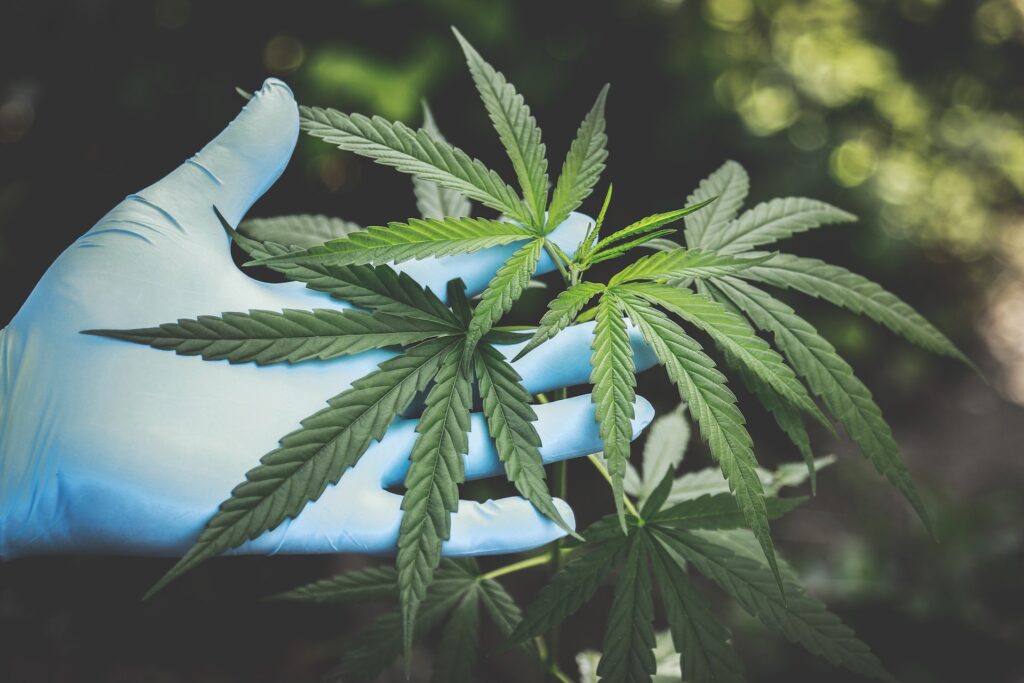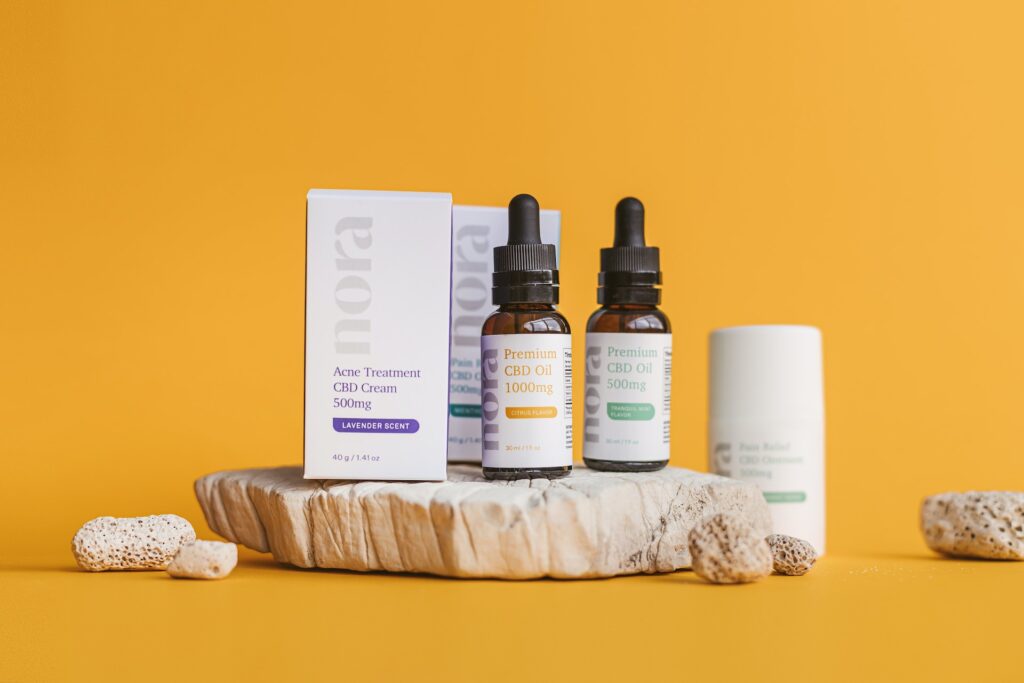Addiction withdrawal is a challenging journey, encompassing physical discomfort and emotional turbulence. As we navigate the complexities of recovery, an intriguing potential ally has emerged in CBD – cannabidiol. In recent years, its reputation has grown beyond a mere trend, raising curiosity about its role in addiction withdrawal. Its interaction with the endocannabinoid system can alleviate anxiety, cravings, and physical discomfort, as well as improve sleep patterns. So, let’s explore the full potential of CBD in managing addiction withdrawal and how it can aid you in your recovery journey!
Unveiling the Power of CBD in Managing Addiction Withdrawal
Amid the challenging landscape of addiction withdrawal, CBD emerges as a potential game-changer. First, it’s important to understand the challenges of addiction withdrawal, debunk the most common misconceptions about cannabidiol, and then explore its fascinating connection with the endocannabinoid system.
Understanding Addiction Withdrawal
Withdrawal from addiction isn’t merely a phase. On the contrary, it’s a complex process encompassing physical and psychological hardships. As the body and mind adapt to the absence of substances, individuals often face intense cravings, anxiety, and a range of discomforts. While CBD isn’t a standalone solution, recent studies showed its ability to address various aspects of withdrawal, offering a multifaceted support system for those striving to overcome the hurdles of addiction recovery.

Beyond the Buzzword
As the buzz around CBD continues, it’s important to demystify its nature. Unlike its psychoactive counterpart, THC, CBD doesn’t induce a high. Derived from the hemp plant, it offers a potential remedy without the mind-altering effects that often raise concerns.
Regarding addiction recovery, CBD isn’t intended to replace outpatient recovery programs, counseling, or medical supervision. Instead, it can be seen as a complement to these efforts. For instance, in outpatient recovery programs, incorporating CBD can provide additional support. It provides a holistic approach that enables individuals to alleviate some withdrawal symptoms and support mental well-being as they head down the road of sobriety. By seamlessly integrating it into your regimen, you can potentially manage withdrawal symptoms more effectively and find greater balance during the recovery journey.
The Endocannabinoid System (ECS) Connection
The human body operates through intricate systems, including the endocannabinoid (ECS), responsible for maintaining balance. CBD’s interaction with ECS receptors offers a potential avenue for regulating imbalances caused by addiction withdrawal. The ECS receptors spread throughout the body, regulating functions like mood, pain, and sleep. When addiction disrupts this delicate balance, cannabidiol’s interaction with ECS receptors could restore equilibrium, alleviating anxiety, reducing pain perception, and promoting well-being.
CBD in Managing Addiction Withdrawal
So, let’s delve into how CBD can significantly address anxiety, cravings, physical discomfort, and sleep disturbances. That will give us a clearer picture of its practical impact on the path to recovery.
Alleviating Anxiety and Stress
Anxiety and stress often overshadow the withdrawal process, exacerbating recovery challenges. However, cannabidiol interacts with serotonin receptors in the brain and may contribute to reducing anxiety levels. By modulating these receptors, CBD could alleviate the intense unease commonly experienced during withdrawal.
Curbing Cravings and Dependency
Cravings are formidable adversaries in the battle against addiction. CBD’s potential impact on the brain’s reward system introduces a novel dimension to managing this issue. Influencing neural pathways associated with reward and pleasure might help mitigate cravings’ intensity, offering individuals a chance to regain control over their impulses.

Easing Physical Discomfort
Withdrawal often brings a barrage of physical discomforts, including pain and nausea. CBD’s anti-inflammatory properties could potentially provide relief from such symptoms. Interacting with receptors in the immune and nervous systems might help reduce inflammation and alleviate pain. This natural approach to managing physical discomfort promotes a more holistic recovery journey.
Enhancing Sleep Quality
Quality sleep is essential for overall well-being, especially during the recovery process. The medical professionals at Bright Futures Treatment Center observed that patients who experience better sleep recover faster, as healthy sleep patterns alleviate withdrawal symptoms like anxiety and stress. CBD has shown promise in enhancing sleep due to its potential to relax the mind and body by interacting with receptors that regulate sleep-wake cycles. As a result, it might promote a more restful sleep, contributing to a more effective recovery journey.
How to Incorporate CBD Into Your Withdrawal Management Plan
Consulting with healthcare professionals is vital before introducing CBD into your withdrawal management plan. They can offer tailored advice based on your circumstances, ensuring it is submitted safely and effectively. That way, you’ll be able to maximize the benefits of CBD for managing addiction withdrawal and ensure they align with your overall recovery strategy.
Choose the Right CBD Product
Of course, one size doesn’t fit all, so choosing the right CBD product that’ll suit your needs is important. With many options available, finding the best fit requires thoughtful consideration. Here are some of the most commonly used products:
- Oils: they are liquid extracts that you can take sublingually or add to foods and beverages.
- Edibles: Consumable products like gummies, chocolates, and capsules infused with CBD.
- Topicals: Creams, lotions, and balms are applied directly to the skin for localized relief.
- Beverages: Drinks like teas, coffees, and sparkling water infused with CBD.
Once you find the right type of product for you, start with a low dose and gradually increase it to allow your body to acclimate. Also, always seek products from reputable brands prioritizing quality and transparency to ensure you receive a reliable CBD source.

Monitor and Adjust Usage
CBD’s impact can vary from person to person, so it’s vital to keep track of changes in symptoms, mood, and overall comfort. If needed, adjusting the dosage or consumption method under the guidance of healthcare professionals can optimize the benefits of CBD and fine-tune its role in your journey toward sobriety.
Navigating the Path to Holistic Recovery with CBD
In the journey of addiction withdrawal, CBD shines as a potential ally, offering multifaceted support for managing the challenges. While not a standalone solution, its role in alleviating anxiety, cravings, physical discomfort, and sleep disturbances can’t be ignored. Remember, CBD is most effective when integrated into a comprehensive withdrawal management plan under medical supervision. By embracing its potential alongside expert guidance, you can stride confidently towards recovery and healthier, addiction-free life.
- SEO Powered Content & PR Distribution. Get Amplified Today.
- PlatoData.Network Vertical Generative Ai. Empower Yourself. Access Here.
- PlatoAiStream. Web3 Intelligence. Knowledge Amplified. Access Here.
- PlatoESG. Automotive / EVs, Carbon, CleanTech, Energy, Environment, Solar, Waste Management. Access Here.
- PlatoHealth. Biotech and Clinical Trials Intelligence. Access Here.
- ChartPrime. Elevate your Trading Game with ChartPrime. Access Here.
- BlockOffsets. Modernizing Environmental Offset Ownership. Access Here.
- Source: https://greencamp.com/the-potential-of-cbd-in-managing-addiction-withdrawal/




